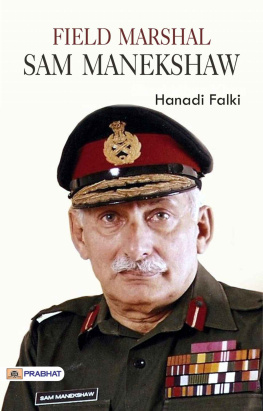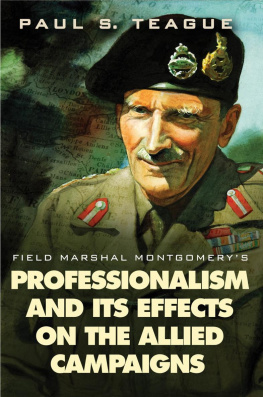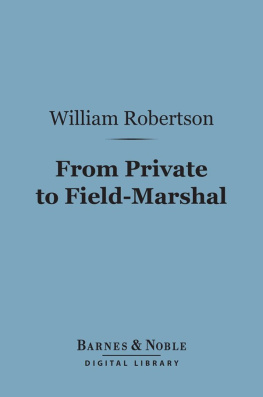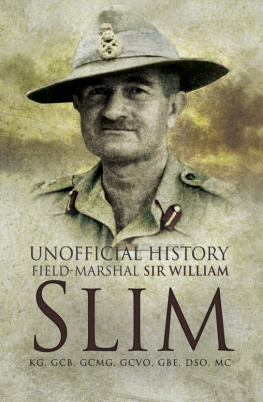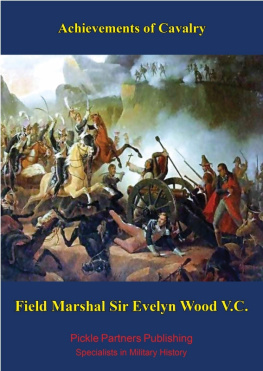Hanadi Falki - FIELD MARSHAL SAM MANEKSHAW
Here you can read online Hanadi Falki - FIELD MARSHAL SAM MANEKSHAW full text of the book (entire story) in english for free. Download pdf and epub, get meaning, cover and reviews about this ebook. publisher: Prabhat Prakashan, genre: Non-fiction. Description of the work, (preface) as well as reviews are available. Best literature library LitArk.com created for fans of good reading and offers a wide selection of genres:
Romance novel
Science fiction
Adventure
Detective
Science
History
Home and family
Prose
Art
Politics
Computer
Non-fiction
Religion
Business
Children
Humor
Choose a favorite category and find really read worthwhile books. Enjoy immersion in the world of imagination, feel the emotions of the characters or learn something new for yourself, make an fascinating discovery.
- Book:FIELD MARSHAL SAM MANEKSHAW
- Author:
- Publisher:Prabhat Prakashan
- Genre:
- Rating:5 / 5
- Favourites:Add to favourites
- Your mark:
- 100
- 1
- 2
- 3
- 4
- 5
FIELD MARSHAL SAM MANEKSHAW: summary, description and annotation
We offer to read an annotation, description, summary or preface (depends on what the author of the book "FIELD MARSHAL SAM MANEKSHAW" wrote himself). If you haven't found the necessary information about the book — write in the comments, we will try to find it.
FIELD MARSHAL SAM MANEKSHAW — read online for free the complete book (whole text) full work
Below is the text of the book, divided by pages. System saving the place of the last page read, allows you to conveniently read the book "FIELD MARSHAL SAM MANEKSHAW" online for free, without having to search again every time where you left off. Put a bookmark, and you can go to the page where you finished reading at any time.
Font size:
Interval:
Bookmark:
Field Marshal
Sam Manekshaw
Hanadi Falki

Early Life
F ield Marshal Sam Hormusji Framji Jamshedji Manekshaw, fondly known as Sam Bahadur, was one of the greatest war heroes and military leadersof India. The first Indian Army officer to be promoted to the five-star rank of Field Marshal, Sam Bahadur continues to be the most admired of our Army Chiefs.
Credited with Indias decisive military victory over Pakistan in 1971 as Chief of Staff (1969-73) of the Indian Armed Forces, Sam became a household name in India. Spanning four decades, heserved the country gloriously through five warsWorld War II, the Indo-PakistaniWar of Partition (1947), the Sino-Indian War (1962), and the India-Pakistan wars (1965 and 1971).
Though Sam intended to pursuehis career as a doctor, he later joined the first batch of the Indian Military Academy (IMA) in 1932. Before that,Sam attended Sherwood College in Nainital and Hindu Sabhya College in Amritsar. After passing his Senior Cambridge with distinction, Sam went back to Amritsar, hoping his father would send him to England to study medicine. But, his father refused.
Meanwhile, the Indian Military College Committee recommended a military training academy in India to train fellow Indians for commission into the Army. Early in 1932, it was announced that the Public Service Commission would conduct an examination for entrance to the Indian Military Academy (IMA) in June or July. On December 10, 1932, Field Marshal Sir Philip Chetwode, Bart, GCB, GCSI, KCMG, DSO, formally inaugurated the Academy.
In an act of rebellion, following his fathers refusal to send him to England, Sam took some money from his mother and went to Delhi. He wanted to take the examination for enrollment into the Academy. The formal military training for the cadets commenced from October 1, 1932, and Sam was one of the 15 cadets to be selected through open competition. There were a total of 40 vacancies15 selected through open competition, 15 from the Army and 10 from the Indian State Forces. Only 15 cadets were selected and Sam ranked sixth in the order of merit. The first batch, called The Pioneers, produced three future ChiefsManekshaw who in course of time rose to head the Army in India; Smith Dun in Burma and Mohammed Musa in Pakistan.
Along with rigorous physical and small arms training, Sam spent hours on the drill square to perfect the routine. He was initially assigned to B Company, Woolwich Wing for technical arms training because of his good scores in English and Mathematics. Later, due to his grades, he was transferred to D Company, Sandhurst Wing, where he trained for fighting arms under his company commander, Maj. D. T. Punch Cowan of 6th Gurkha Rifles.
On his report for Sam, Maj. Cowan wrote, He can maintain a stiff upper lip in adversity and does not lose heart, and he possesses power of command, drive and a cheerful personality. He is popular with his fellow cadets and I am sorry that owing to the company reorganization, it has been found necessary to transfer him to another company, as, since he first joined B Company, he has taken a prominent part in its social and athletic activities and he will be sorely missed by all ranks.
Sam was an enthusiastic sportsman. He excelled in tennis and made his mark in the Academy Tennis Team. He was duly awarded the Tennis Blue on October 12, 1933. Though he wasnt enthusiastic about horse riding, Sam was a good boxer and became the captain of the athletics team of his Battalion. When his unit conducted intercompany sports, he volunteered to participate in the High Jump event because there werent very many participants for that particular event. Sam ended up setting a new record for his unit.
Right from his days at IMA, Sam proved to be witty and humorous. He enjoyed his stay at the Academy, though he often got into trouble. As a GC, Sam displayed all the qualities of leadership and was awarded the rank of corporal on June 19, 1933.
During his stay, Sam had many firsts to his credit. Gentlemen Cadets were permitted to go on liberty on weekends and Sam was the first GC to ask for a weekend leave to go to Mussourie, which was just an hours drive from the Academy. However, later, he was also the first one to be awarded an extra drill at IMA. The laws and rules of the IMA tamed Sams wild spirit, but he frequently landed in trouble.
Once Captain Mclaren of the Black Watch RegimentSams Adjutant at IMAhad to ceremoniously peel the stripes off Sams sleeve as a punishment for spending a night out of the Academy without permission. It was during a weekend that Sam and two of his friendsMaharaj Kumar Jit Singh and Haji Iftikhar Ahmedwent up to Mussourie to watch the floor show in Hakmans Hotel.
They lost track of time and missed the last bus to Dehradun on that fateful Sunday night. As a result, they had to go back to the hotel. Sam reported sick at the Sick Bay in order to avoid punishment. On Monday morning, when they were back at the Academy, they were promptly put on charge and gated and confined to the barracks for 15 days. Sam was deprived of his Corporal rank and he lost his stripes for feigning sickness.
Sam was the first of the alumni to join the Gorkha Regiment. Even after years of passing out from the Academy, Sam continued his tradition of firsts when he became the first of the alumni to serve as the Chief of the Army Staff of India and the first to attain the rank of Field Marshal.
Sams keen wit and humour soon catapulted him into the limelight. Looking back, Sam recalled that at IMA they woke up in the mornings, did physical training for half an hour, came back, dressed and had breakfast before going to their company lines and spent all their time avoiding the Commanding Officer. Once Sam wrote an article, A Letter from Maneksam, which was published in the Academys journal (June 1933). Using his characteristic sense of humour in the letter, Sam advised a prospective Gentleman Cadet on the various facets of life at the Indian Military Academy.
My Dear Rustom,
I was delighted to see in the paper that you were successful at the recent examination for the IMA and I hasten to congratulate you.
A few hints on your deportment on first arrival at the IMA may not come amiss, and in view of our old friendship, I send them to you.
When you arrive at Dehra Dun Station you will be met by various representatives from the IMA, the Company Commander, Adjutant, Quartermaster, etc. They are sent to carry your luggage for you, so give them yours at once. I was lucky enough to be met by the Adjutant, a big man who wears funny trousers and belongs to that barbarous English sect called the ScotsI believe they are regarded as untouchables in England. I had thought of going up to Mussourie, but the Adjutant and I were having such an interesting conversation that I decided to defer the visit and drive to the Academy with him. As exploration is encouraged, I advise you on arrival to inform the Adjutant that you are going up to Mussourie and wont be back till the evening. Tell him to have your bath ready on your return.
Now a few words about The Life. You will be delighted to hear that you have both Drill and PT daily. We love all these things. Our enthusiasm is such that we all apply for Extra Drills and are given plenty of them. I advise you to do the same, the staff are very obliging in this respect.
People like myself are termed Seniorsthe best way for you to show your independence, a characteristic which is admired, is to ignore seniors, especially those with stripes on their sleeves. When the latter talk to you just put your hands in your pockets and turn your back on them; they will appreciate you all the more.
Next pageFont size:
Interval:
Bookmark:
Similar books «FIELD MARSHAL SAM MANEKSHAW»
Look at similar books to FIELD MARSHAL SAM MANEKSHAW. We have selected literature similar in name and meaning in the hope of providing readers with more options to find new, interesting, not yet read works.
Discussion, reviews of the book FIELD MARSHAL SAM MANEKSHAW and just readers' own opinions. Leave your comments, write what you think about the work, its meaning or the main characters. Specify what exactly you liked and what you didn't like, and why you think so.

